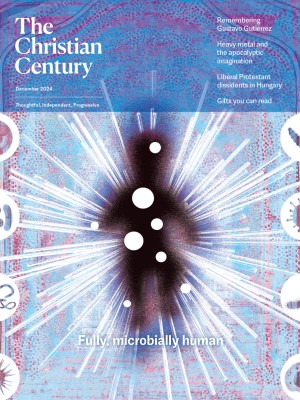December 29, Christmas 1C (Luke 2:41-52)
Twelve years into this parenting gig, Mary knows there’s not much she can do to keep her son safe.
In the movie Home Alone, eight-year-old Kevin McCallister gets accidentally left behind when his family goes on a European vacation for Christmas, and he has to fend for himself for several days. I was in middle school when the movie first came out, and I was just the right age to think that it was hilarious to watch Kevin shopping for groceries and eating ice cream for dinner and defending himself from the burglars who were trying to rob his house. The movie invited kids everywhere to imagine how they might run free if all the grown-ups were suddenly gone from their lives.
I hadn’t seen Home Alone for a long time, probably decades, when we watched it together as a family recently. I could have sworn it was an entirely different movie. I thought it was a story about what a kid could do if left to his own devices, but it turns out—I realized as I watched with my own kids snuggled on the couch with me—it’s about a mother who has been separated from her son, doesn’t know if he’s OK, and wants nothing more desperately than to get back to him and hold him in her arms.
Read our latest issue or browse back issues.
My son is 12 years old now, the same age as Jesus in the only story about his childhood preserved in the gospels. My son rides his bike to school every day along a bike path that is mostly safe but involves at least one fairly busy intersection. Sometimes I follow him on my phone, watching the little dot that represents him moving farther away from me in the morning and back home in the afternoons. I’m aware that this surveillance does little to keep him safe from distracted drivers, but still, I watch.
It doesn’t sound like a GPS tracker would do Mary much good when Jesus disappears on the way home from Jerusalem. It wouldn’t quell the panic when she realizes he isn’t there, the guilt for having let him run off on his own, the worry about what might be happening to him. Twelve years into this parenting gig, Mary knows there’s not much she can actually do to keep her son safe; all she can do is watch.
Still, when she finds him, her relief comes out in anger: Don’t do that! You scared me to death! She doesn’t quite understand, then, when Jesus says to her, It’s OK. This is where I’m supposed to be. Still, she takes all this and ponders it in her heart, like she did when he was a baby and the shepherds and the angels showed up in Bethlehem. She knows what every parent quickly realizes, which is that as soon as our children are born they are moving away from us, finding their own way in the world, their own calling, the one place where they belong.
So maybe we read this story with the heart of a parent. Or maybe—because this is how the scriptures work, they speak to us in different ways at different times—maybe what we see here is a child who has found a place where he feels at home. Maybe the truth is that he doesn’t feel that much at home with Mary and Joseph and their community back in Nazareth. Maybe he doesn’t quite fit in with the other kids, maybe they make fun of him, maybe he’s already sensing that something is different about him. So when he finds himself in Jerusalem and makes his way to the temple, maybe there is something there that calls to him, makes him feel more like himself than he ever has at home. Maybe when the caravan leaves, he ducks around the corner so no one will notice he has stayed behind and then slips back in and finds some teachers who will help him understand.
And like any good teacher, those in the temple know that there’s no such thing as other people’s children, so they look after him, make sure he is OK. They can see something in him that he is just starting to understand for himself. They welcome him in and make him feel at home.
It seems to me that the church, when we’re at our best, is something like that: a place where people belong. A place where people—maybe especially people who don’t feel at home in their own communities, their own family, their own skin, their own bodies—can find a place where they feel more like themselves, so that when their old lives come looking for them, they can say, it’s OK; this is where I’m supposed to be.






